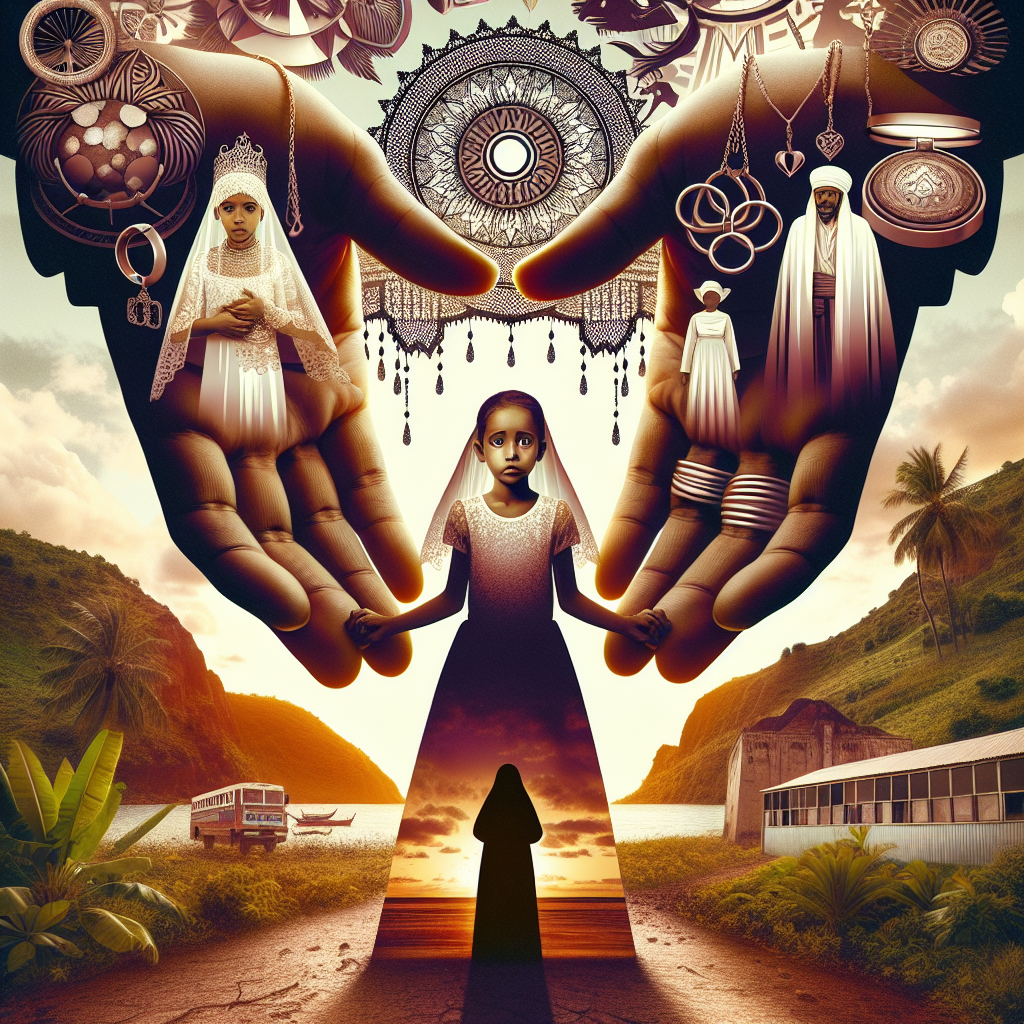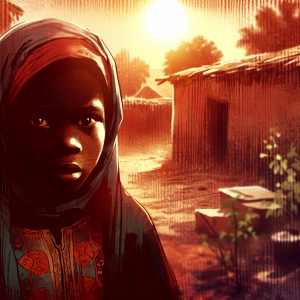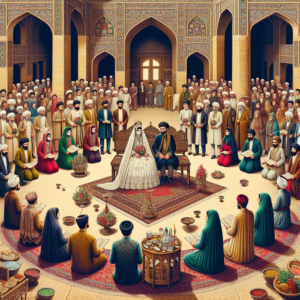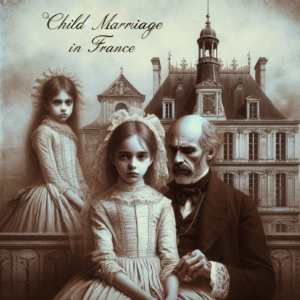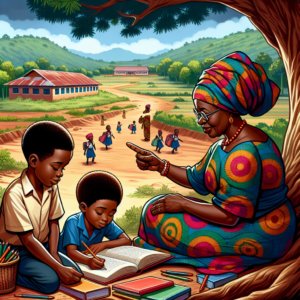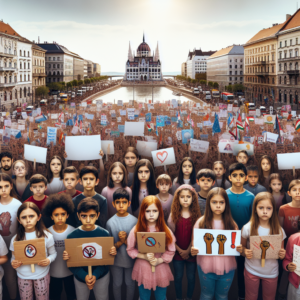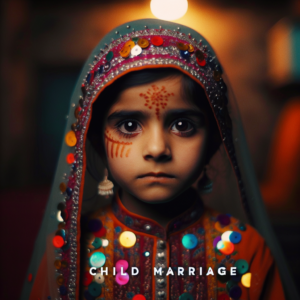#ChildMarriage #EndChildMarriage
Shattering the Shackles: The Struggle Against Child Marriage in Comoros
Set in the midst of the Indian Ocean, the Comoros archipelago is celebrated for its majestic volcanic landscapes, pristine beaches, and a rich blend of African, Arab, and French cultural influences. Yet, beneath its idyllic exterior, the nation grapples with a grave challenge that impacts numerous young girls: child marriage. This piece examines the intricate issue of child marriage within Comoros, shedding light on its causes, effects, and the relentless efforts to safeguard children’s rights.
Deciphering Child Marriage in Comoros
Child marriage, the act of marrying or entering into an informal union before 18, stands as a human rights infringement. The practice is disturbingly common in Comoros, with reports from the United Nations Children’s Fund (UNICEF) indicating a high percentage of girls married in their childhood. This issue is not unique to Comoros but affects countless children across the globe.
Root Causes of Child Marriage
Various factors contribute to the perpetuation of child marriage in Comoros:
- Economic Hardship: For many families, marrying off a child is seen as a strategy to alleviate financial strain. A daughter’s marriage can decrease the family’s expenses, and sometimes, a bride price is received by the girl’s family.
- Cultural Practices: Child marriage is deeply embedded in the traditions of numerous communities, often regarded as a means to preserve a girl’s virtue by ensuring she marries as a virgin.
- Educational Barriers: A lack of schooling makes girls more susceptible to early marriage. Education serves as a potent mechanism to postpone marriage, providing girls with opportunities and promoting awareness of children’s rights.
Impacts of Child Marriage
The repercussions of child marriage for girls are profound:
- Health Dangers: Young brides face a higher risk of early pregnancy, which can lead to severe health issues or death, as their bodies are not fully prepared for childbirth.
- Disruption of Education: Marriage frequently halts a girl’s educational journey, curtailing her prospects and her capacity to contribute to her society and nation.
- Psychological Effects: Early marriage can lead to isolation, depression, and feelings of powerlessness among young girls.
Combating Child Marriage
The campaign against child marriage in Comoros takes a comprehensive strategy, involving the government, global organizations, and civil society.
Legal Measures
Comoros has progressed in enacting laws to shield children from premature marriage. The nation has endorsed international treaties like the Convention on the Rights of the Child (CRC) and the African Charter on the Rights and Welfare of the Child. Nonetheless, the real challenge is in applying and enforcing these regulations locally.
Empowerment through Education
Empowering girls with education is crucial in the fight against child marriage. Initiatives aimed at keeping girls in school and raising consciousness about children’s rights are vital. Education not only imparts knowledge but also enhances girls’ self-esteem and decision-making capabilities.
Community Involvement
Altering deep-seated cultural norms and traditions necessitates the involvement of entire communities. Efforts that engage parents, religious figures, and community leaders in discussions and education can help transform attitudes and practices concerning child marriage.
Global Support
The international community plays a key role in aiding Comoros in its fight against child marriage. Support in the form of financial aid, technical assistance, and advocacy work strengthens national endeavors to uphold children’s rights.
Agents of Change
The crusade against child marriage in Comoros gains momentum from those advocating for women’s and children’s rights. Celebrated figures and human rights champions have emphasized the importance of this fight. Malala Yousafzai, the Pakistani advocate for female education and youngest Nobel Prize laureate, famously stated, “We cannot all succeed when half of us are held back.” This reflects the urgent need for gender equality and the protection of girls from practices like child marriage.
Maya Angelou, the American poet and civil rights advocate, once remarked, “I’ve learned that people will forget what you said, people will forget what you did, but people will never forget how you made them feel.” This highlights the significance of empathy and action in battling child marriage, reminding us that our endeavors can have a lasting impact on the futures of young girls in Comoros and elsewhere.
Conclusion
The fight against child marriage in Comoros is a pivotal human rights issue. It demands a collective effort from individuals, communities, and the global community to defend children’s rights and enable girls to achieve their full potential. Echoing the words of human rights advocate Nada Al-Ahdal: “Protecting human rights is not an option, but a responsibility of us all” @nadalahdal. Let’s all embrace this duty and strive relentlessly to dismantle the chains of child marriage, not just in Comoros but across the globe.
#NadaFoundation
#ChildMarriage
#Nada_Foundation
#NadaAlahdal
#Breaking #Chains #Battle #Child #Marriage #Comoros
breaking-the-chains-the-battle-against-child-marriage-in-comoros



